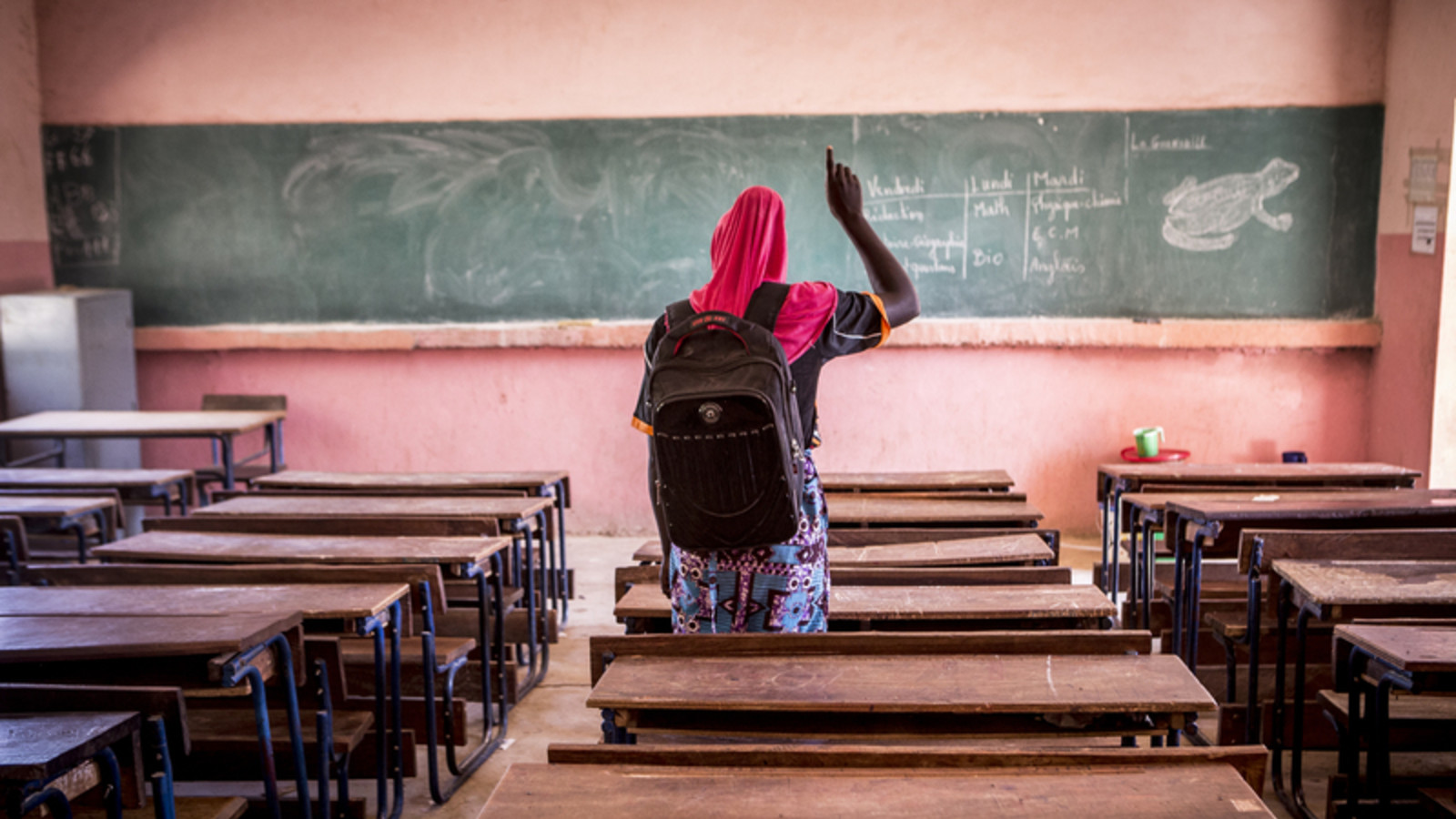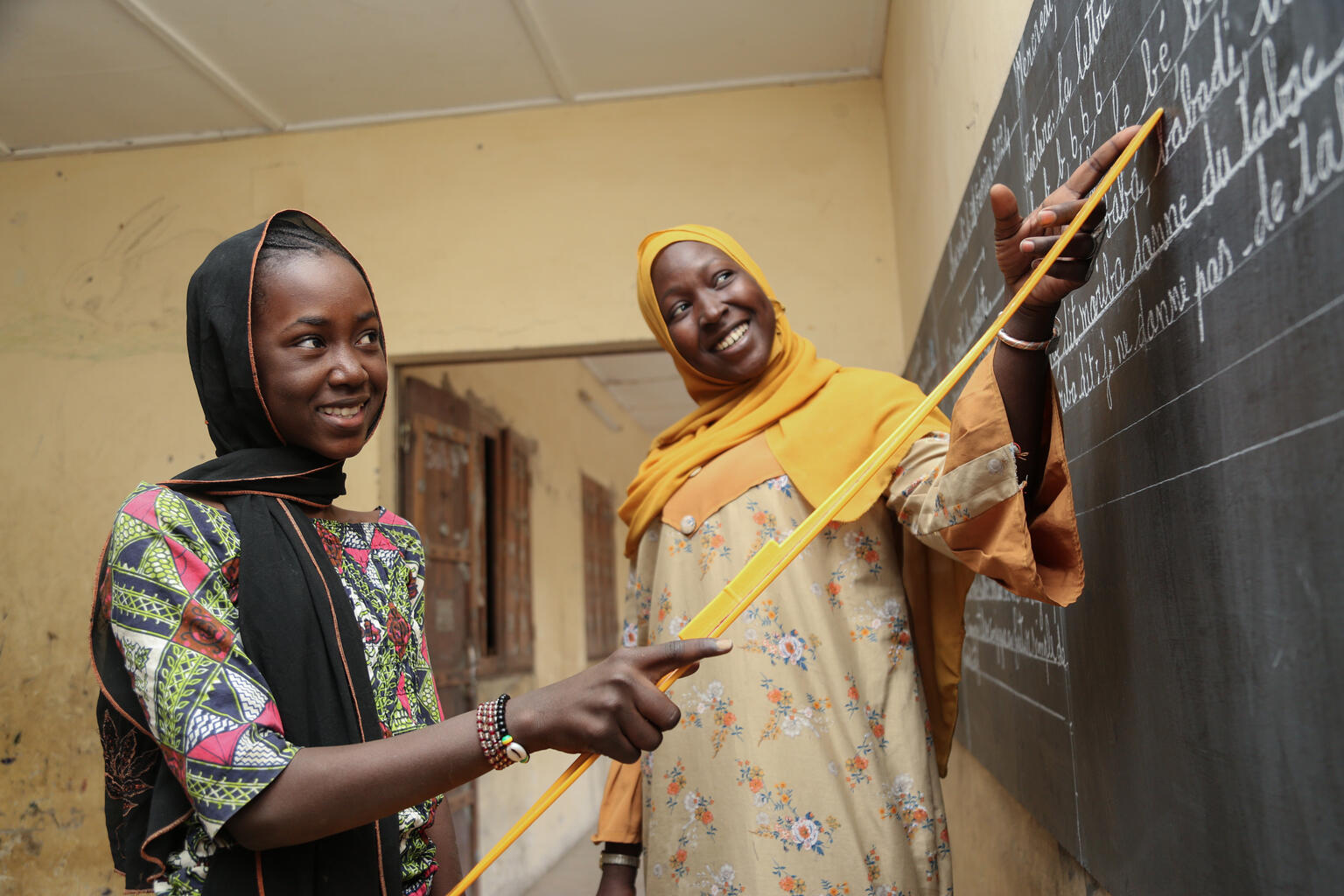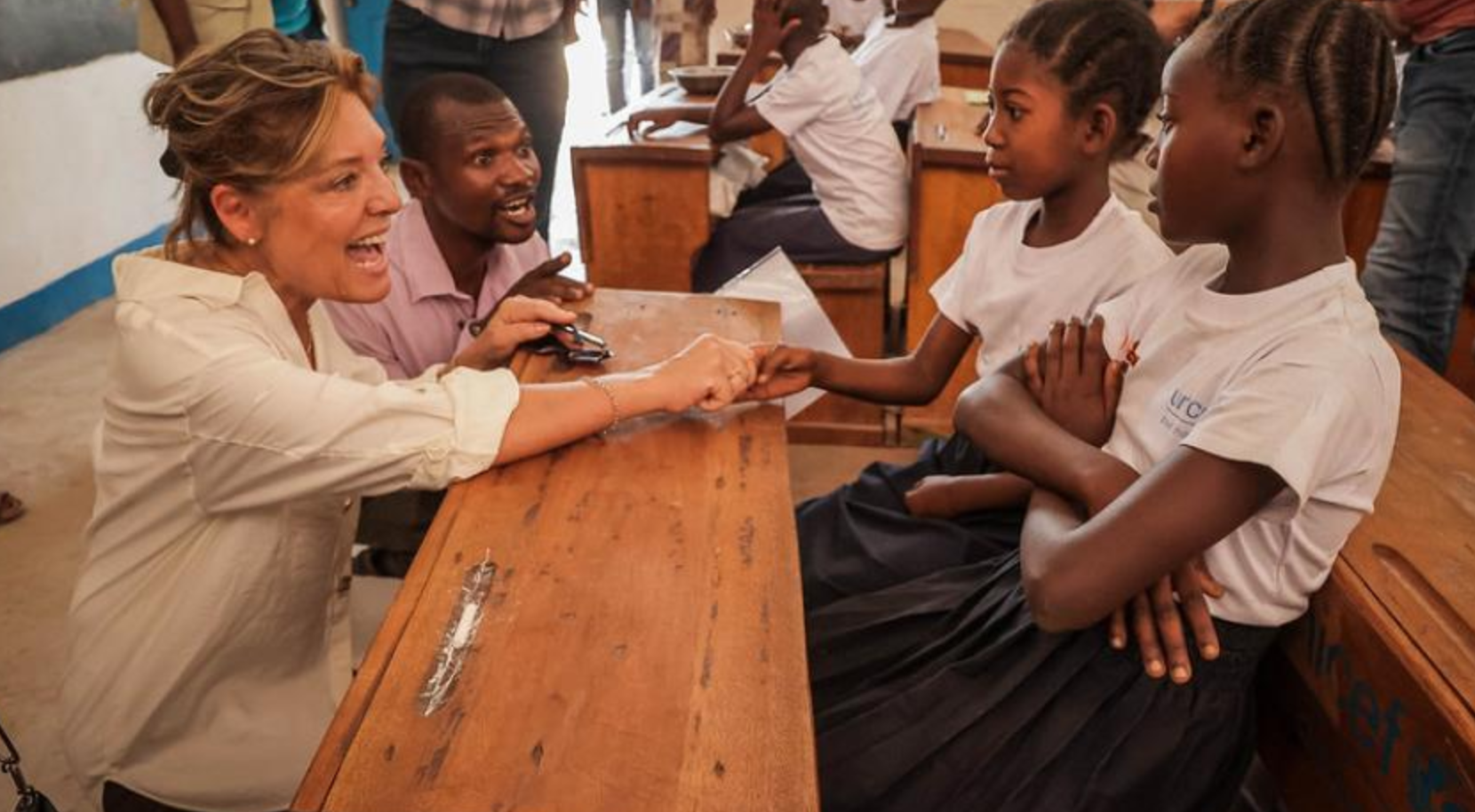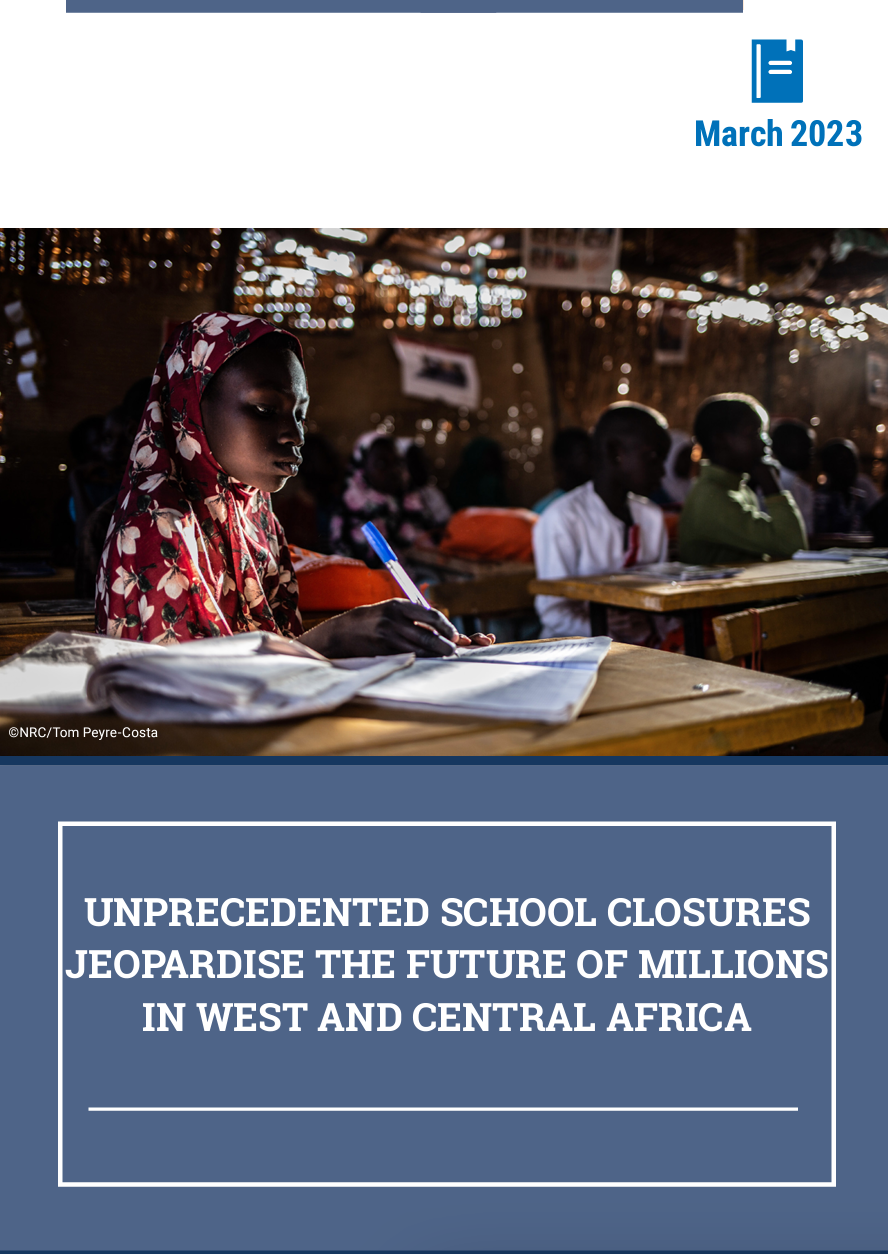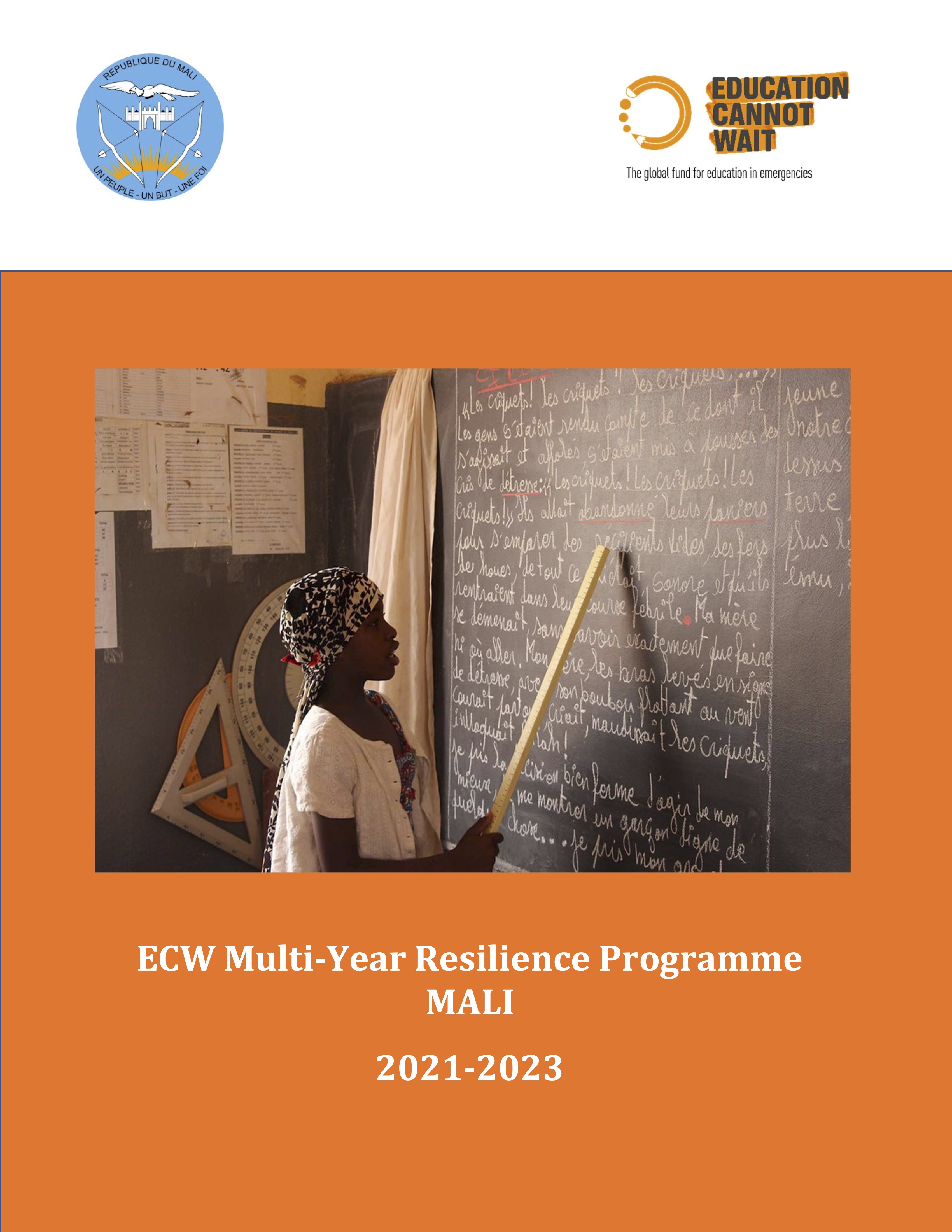ECW in Mali
In Mali, and in the surrounding Sahel region, ongoing conflict and insecurity have disrupted the lives of millions of people. The violence, along with the COVID-19 pandemic and climate change, has left half of the out-of-school children exposed to recruitment by armed forces, child marriage, forced labour and other forms of exploitation and abuse. Education Cannot Wait (ECW) supports partners to strengthen the education sector through educator training, community engagement, safe learning spaces and support for displaced children. This is part of the Fund’s response to the impacts of the Sahel regional crisis in Burkina Faso, Mali and Niger.
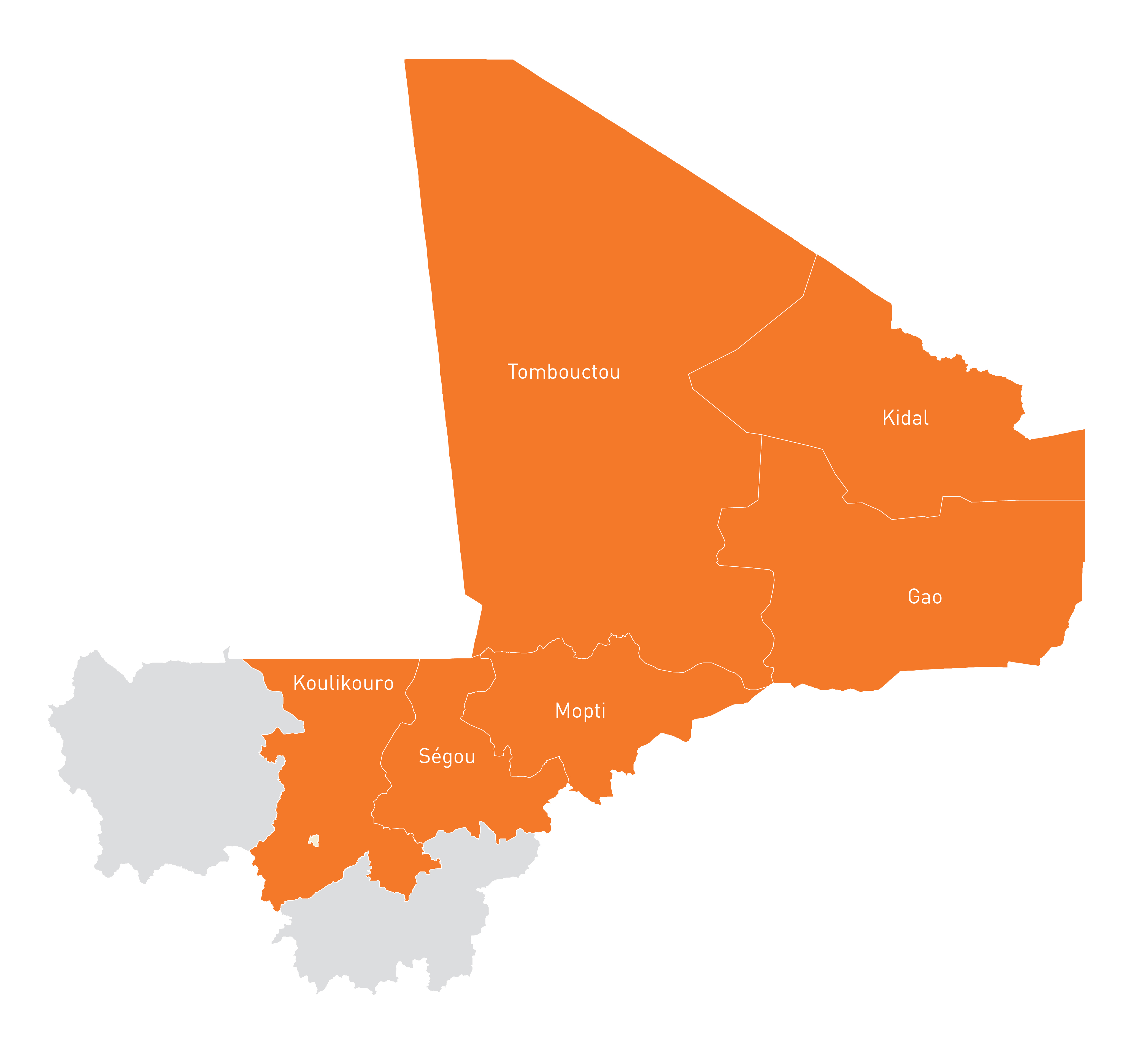
Investments
Financial Information
National Counterparts
Ministry of Education
Results
Additional Results
- Number of women and men reached by community mobilization campaigns to encourage re-enrolment of out-of-school children: 17,349
- Number of children and adolescents supported with school feeding programmes: 12,009
- Number of teachers/administrators who demonstrated increased knowledge on water, sanitation and hygiene: 1,272
- Number of learning spaces with functioning school-management committee and/or parent-teacher association: 935
COVID-19 Results
Programme Info
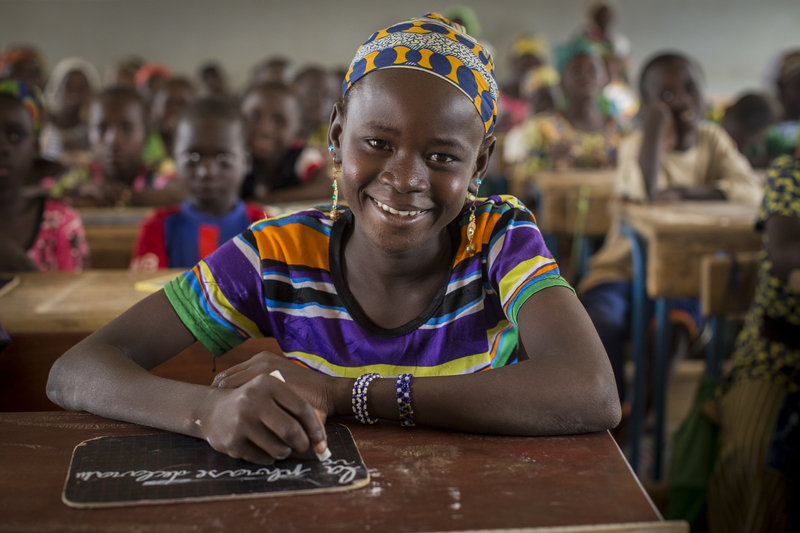
This security situation threatens the well-being of children and their access to safe learning environments. Indiscriminate attacks by armed groups against civilians; violence against girls and women; and attacks on state institutions, including schools and health facilities, are common throughout the region. In Mali, over half of the students are out of the classroom and vulnerable to recruitment by armed forces, sexual and gender-based violence, child labour, and other forms of exploitation and abuse.
Building on the impact of the First Emergency Response (FER) initially rolled out in 2019, ECW has launched a Multi-Year Resilience Programme (MYRP). As part of the Fund’s regional response, MYRPs have also been launched in Burkina Faso and Niger. All the programmes seek to strengthen the education sector and provide for children’s critical needs in the areas of safety and protection.
In Mali, the MYRP aims to expand access to learning spaces; cover school fees for families; provide remedial learning courses; strengthen the capacity for the learning environment; support educators; and engage the communities in which they work. ECW also provides support for girls and children with disabilities; increases enrolment rates and implements school protections through a holistic approach that meets children and adolescents’ physical, mental and psychosocial needs.
Programme Components
- Engaging the community. A national back-to-school campaign engages community members in targeted regions to increase enrolment through student ambassadors. Community mobilization activities and assemblies focusing on gender mainstreaming and girls’ inclusion in education are held for village chiefs, counsellors, and women and youth. This facilitates registration and enrolment in accelerated learning centres. Communal committees are established to monitor the community as well as the participation in school of children with disabilities and displaced children.
- Increasing access to learning spaces. Access to education provided through the rehabilitation or construction of classrooms and temporary learning spaces, to prevent students from dropping-out and facilitate the reintegration of out-of-school students.
- Providing remedial courses and improving learning outcomes. ECW helps thousands of internally displaced students to prepare for their end of the year examinations through remedial courses. The vast majority pass and continue with secondary schooling, where they are supported with transportation, meals and health kits.
- Training educators. Training provided for educators, school management committees and parent associations on safe schools and child protection. A psychosocial support guide was developed and distributed across communities.
For more information on ECW's work in Mali, please contact Country Lead Graham Lang (glang@un-ecw.org) and Programme Manager Noemi Robiati (nrobiati@unicef.org).

